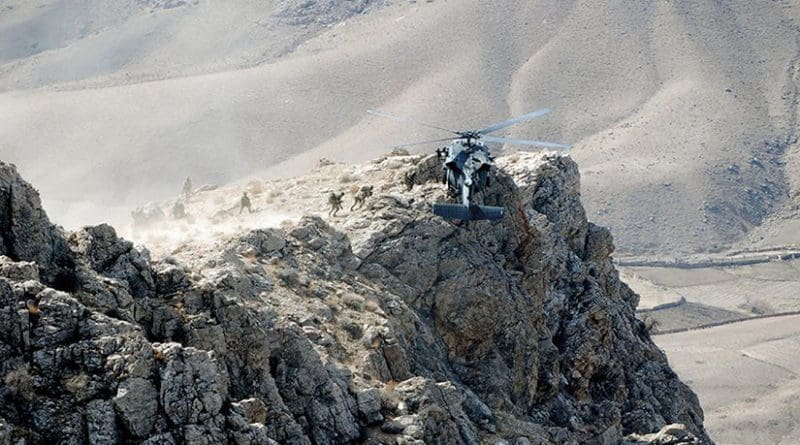US Taxpayers Have Spent Enough On War In Afghanistan – OpEd
By MISES
By Tim Haffner*
Former Navy SEAL and Blackwater founder, Erik Prince, recently penned an Op-Ed for the Wall Street Journal calling for a MacArthur Plan for Afghanistan that rests on two pillars: a central Viceroy acting with complete authority to direct development activities and a privatized East India Company model for securing key areas to bolster economic growth. He goes on to posit mineral resource extraction and agriculture cultivation as the means of funding Afghanistan’s rise into the ranks of civilized nations.
Of course, leftists immediately denounced the idea as war profiteering and corporate undermining of state authority. In terms of political economy, Prince is correct to point out the tremendous waste of money the US led coalition is costing the taxpayers of participating countries. After more than 16 years of occupation, the military campaign has become a quagmire and preventing the rise of future threats emanating from Afghanistan requires a comprehensive redesign and philosophical approach. Citing the expected $45 billion investment projected for 2017, Prince claims that his privatized security plan under a unified governor would cost only $10 billion. While this would be a significant savings and an improvement from the status quo, it still places the American taxpayer on the hook for subsidizing someone else’s security while adding nothing to their own. It still rests on a justified notion of foreign interventionism that makes every American an accomplice to aggressive invasion.
The United States faces no existential threat from Afghanistan. The potential for terrorist plots launching from Afghanistan are minuscule compared to the costs, military degradation, and fomenting of retaliatory hatred that comes from US deployments there. The 9/11 attacks, designed and launched from Afghanistan, were significant to be sure, yet as Sun Tzu teaches in chapter 8 of the Art of War, we should not count on the enemy not coming, but on our preparedness to defend. Preventing a 9/11 style attack does not require invading another country, but in dissolving the artificial restrictions that prevent captains, crews, and travelers from defending themselves, and what is theirs, while in transit.
Further, as Americans are constitutionally obliged to provide for their own security, benefiting, at best, by supplemental efforts orchestrated by the federal architecture, the defensive mandate allows for no public expenditures to benefit anyone other than taxpaying constituents. In other words, and to paraphrase Madison, the US federal government has no authority to spend from the public treasury on objects of benevolence for Afghans. The eradication of Al Qaeda through targeted strikes or bounties may have been at one time a legitimate political goal, yet that ship has long sailed past and now the American enterprise is sinking in the swamp of nation building.
If Afghanistan is as rich in minerals and valuable resources as is purported, indeed the international division of labor would benefit by an improved security environment that allows for their cultivation. Yet, investing in a commercial venture to first secure and then operate in these industries is the proper field of market actors, ideally in compliance with local governance and cooperating with legitimate property owners that see the benefits of such endeavors. Again, the taxpayers of coalition nations have no obligation to bankroll these efforts. In this way, those who invest and assume risk to operate in austere environments deserve the rewards of doing what others lacked the vision and fortitude to do. Only in this way, would profit be well earned.
It is from the insidious nature of public-private partnership that cronyism confuses the actual creation of social good, and corruption diverts the production’s purpose from delivering products to the market into intangible and nonsensical goals like stopping the tactic of terrorism or spreading democracy. The only way to keep the goals clear is through ensuring the investors, actors, and outcomes are solely within the private sphere.
Those that criticize Blackwater’s activities in Iraq and the infamous Nisour Square Incident like to state that military contractors operate outside of any responsible oversight, yet only pay scant attention to the fact that the regular military and special operations forces, particularly in the form of drone strikes, also routinely bring about civilian casualties and other perverse outcomes.
Further, while critics of private military companies enjoy denigrating mercenaries, they often neglect the state privileges conferred upon Blackwater during the ironically named Iraqi Freedom campaign that allowed for excessive uses of force. Absent these state privileges, a private company acting to secure commercial operations in Afghanistan would need to perform in accordance with local laws, customs, and industry standards. The liability for all violations would fall upon the actors and investors in those companies, and this is another reason to completely sever all authoritative connections between external governments and private military firms; let the risks and rewards be exclusively upon those with skin in the game.
So Mr. Prince’s proposal, by pointing out the perverse outcomes delivered by wasteful bureaucracies, is a small step in the right direction. He just needs to cut the umbilical cord, let the taxpayer off the hook, and let the production of security truly be private as a means of ending the ill-conceived, poorly executed tragedy of the US-led occupation of Afghanistan.
About the author:
*Tim Haffner is an international security consultant and military veteran of Iraq and Afghanistan. He is also a doctoral student of political economy at the Swiss Management Center University.
Source:
This article was published by the MISES Institute

